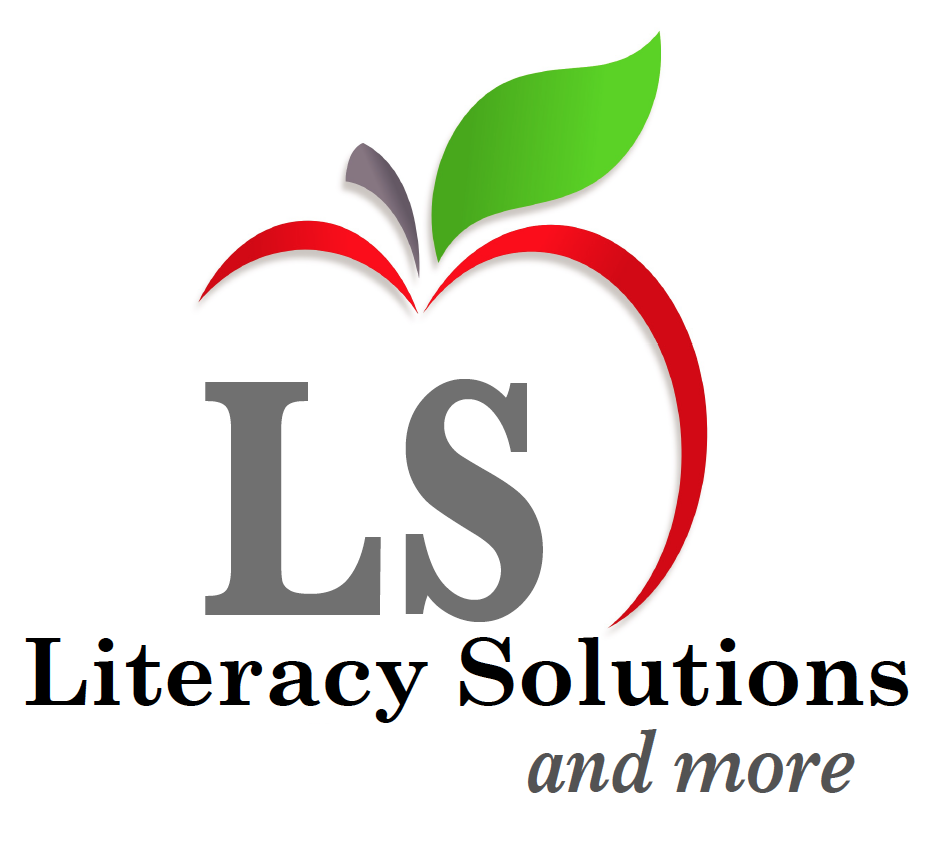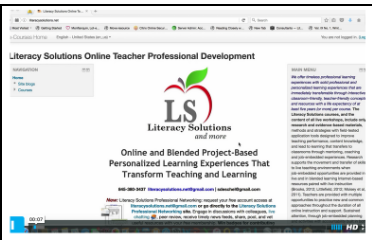Indian River County Schools


Welcome to Literacy Solutions and more, a professional development partnership
with the Indian River County Schools.
Systems Check: Use this checklist to ensure you have a successful learning experience.
Technical issues? Email literacysolutions.net@gmail.com
Getting into a course is easy: 1 - click into a course and download the course syllabus, 2 - preview the assignments, objectives, and course description to find one that meets your needs 3 - click "login" to complete the self-enrollment process (instructions will be on the right-hand side). View this tutorial on the registration process:
Course Tutorial and Overview - click here
This video will demonstrate how to go through a course, print content books, submit assignments, and respond in discussion forums.

Available courses
Competency 2: Application of Research-Based Instructional Practices
Participants will be introduced to sound and scientific research as it promotes literacy across all content areas to help students build foundational skills across reading, writing, speaking and listening. Teachers will learn how to scaffold student learning through the application of research-based reading instruction to include and integrate the six components of reading: oral language, phonemic awareness, phonics, fluency, comprehension, and vocabulary. Participants will learn the scaffolds behind each approach that aid students in the important transition process across all content areas. Intentional, consistent, and rigorous teaching of reading and writing strategy that improves student achievement will engage the 90/90/90 principled approach to consistently streamline curriculum, curriculum resources, and assessment. Participants completing this course will embed field-tested implementation tools to into planning, preparation, and implementation.
Course Outcomes:
- Move scientific theory into classroom strategy, practice, and implementation across specific content areas.
- Acquire and use the skills needed to effectively teach reading comprehension in primary grades with an understanding of the oral and written language that facilitates it through phonology, syntax, semantics, and pragmatics as they relate to comprehending print.
- Understand the importance and function of research-based receptive and expressive vocabulary instruction to include semantics, domain specific vocabulary (academic vocabulary), and morphology as it relates to vocabulary development.
- Understand, and apply to planning and instruction, the research behind vocabulary instruction, and its role in students’ overall understanding of word meanings, repeated practice, and comprehension of print through the use of context clues, explicit teaching, and the use of assessment data to make ongoing decisions directed to individual student needs.
- Scaffold research-based strategy as it builds student reading muscle through writing practice, teacher modeling, and guided practice using applied principles of research-based reading strategy, particularly for text readability, complexity, coherence, structure, and overall comprehension for native speakers of English as well as English language learners.
- Understand and plan for the impact that linguistic and cultural background has on English language learners’ comprehension, along with importance and role of home languages through sound principles of research-based methods that scaffold work into student achievement.
- Plan and prepare to teach using research-based strategy to move their students along a continuum of reading success as it builds reading muscle.
- Plan and practice with numerous formal and informal assessment approaches for comprehension, using data to make informed decisions with which to meet the individual needs of students.
- Import research-based literacy strategy into lessons for rigorous application and implementation.
- Glen and use new strategies for rigor in reading and writing across all subject areas.
- Understand, plan and practice with the scaffolding of research-based methods, strategies, and field-tested tools for classroom implementation to aid all learners across all content areas.
This course is 60 hours
